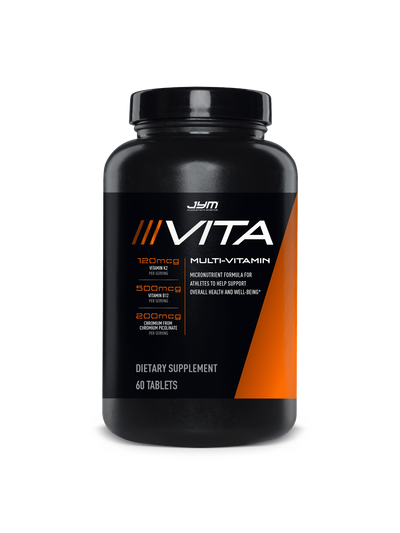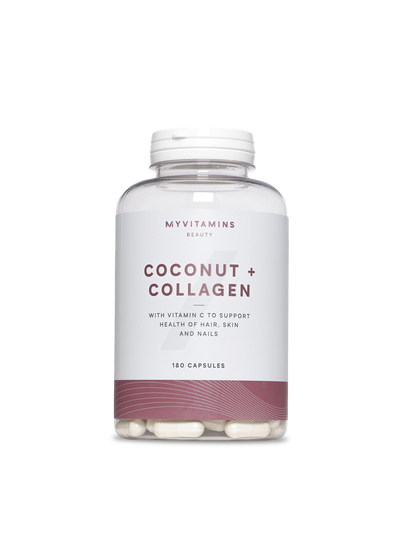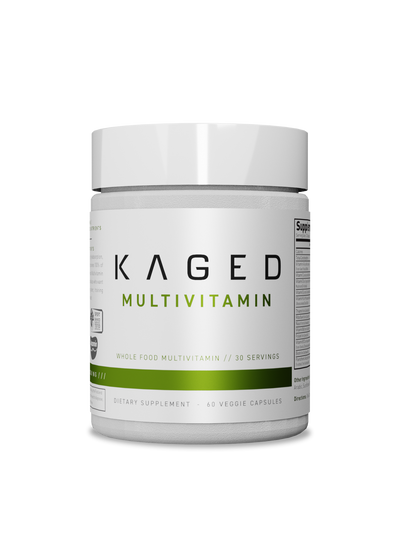Vitamins are essential for health and well-being. They are the building blocks of life and are essential for many biochemical processes in our bodies. Multivitamins are a combination of several different vitamins, which work together to provide the body with the nutrients it needs for optimal health. By understanding the role of vitamins in living a healthy life, we can ensure that we are getting the necessary nutrients to maintain our health.
In this article, we will discuss the power of multivitamins and the importance of incorporating them into a healthy lifestyle. We will look at the different types of vitamins, their benefits, and how to incorporate multivitamins into your diet. With the right knowledge of vitamins, you can ensure that you are getting the right balance of nutrients to help you stay healthy and achieve optimal health.
What are vitamins and why are they important?
Vitamins are organic compounds that are essential for the proper functioning of the body. They are not produced by the body; therefore, they must be obtained from our diet. Vitamin deficiencies can lead to a wide variety of health issues, including increased risk of infection and disease.
The human body cannot produce 9 vitamins. We need to get them from food or dietary supplements. Vitamins function as cofactors, activators, and catalysts. They work with enzymes to facilitate metabolism, promote growth and development, and maintain health. The vitamins are divided into 2 groups: water-soluble vitamins and fat-soluble vitamins. The water-soluble vitamins break down in water, and the fat-soluble vitamins dissolve in fat.

Benefits of multivitamins
A good multivitamin will include a wide range of nutrients, vitamins, minerals, antioxidants, fatty acids, and other beneficial ingredients. A multivitamin can help to prevent deficiencies, improve health, and increase energy levels. The benefits of multivitamins include:
- A wide range of vitamins and minerals - A multivitamin can help to prevent a number of health issues that are caused by a deficiency of certain vitamins, minerals, and other nutrients.
- Helps to reduce fatigue - Fatigue can be caused by a wide range of factors, such as lack of quality sleep, too much stress, and an unbalanced diet. A multivitamin can help to reduce fatigue and improve energy levels.
- Helps to maintain good health - A multivitamin can help to prevent many health issues, including poor immunity and heart disease.
Different types of vitamins
There are 13 vitamins that are essential for good health. They are categorized as either fat soluble or water soluble vitamins. Some vitamins are found in abundance in natural food sources, while others are found in more limited quantities. A multivitamin is a convenient way to ensure that you are getting the recommended daily intake of all of the essential vitamins. Fat-soluble vitamins - Vitamins A, D, E, and K are known as fat-soluble vitamins. The fat-soluble vitamins are stored in the liver, and excess amounts are eliminated through the fecal matter. Fat-soluble vitamins are found in fish, eggs, and dairy products.
- Vitamin A - Vitamin A is essential for good vision, healthy skin, and growth and development. Vitamin A deficiency can lead to night blindness, dry skin, and a weakened immune system. Vitamin A can also help to reduce the risk of certain types of cancers.
- Vitamin D - Vitamin D helps to regulate the amount of calcium and phosphorous in the body. It is essential for maintaining healthy bones, muscles, and teeth. Vitamin D deficiency can lead to rickets and osteomalacia in children and osteoporosis in adults.
- Vitamin E - Vitamin E is an antioxidant that helps to protect the body from free radical damage. Vitamin E deficiency can lead to muscle weakness, infertility, and delayed growth in children.
- Vitamin K - Vitamin K is essential for blood clotting. Vitamin K deficiency can lead to hemorrhage, edema, and an increased risk of fractures.
Water-soluble vitamins - The water-soluble vitamins are vitamin B, biotin, vitamin C, folic acid, niacin, pantothenic acid, and vitamin B12.
- Vitamin B - Vitamin B is essential for metabolism and the formation of red blood cells. Vitamin B deficiency can lead to anemia. Vitamin B is found in nuts, beans, whole grains, and fortified cereals. Vitamin B can help to reduce fatigue and improve mood.
- Vitamin C - Vitamin C is an antioxidant that helps to protect the body from damage caused by free radicals. Vitamin C deficiency can lead to scurvy, a condition characterized by unexplained fatigue, joint pain, and bleeding gums. Vitamin C can also help to reduce the risk of heart disease and certain types of cancers. Vitamin C can be found in citrus fruits, berries, tomatoes, green vegetables, and peppers. Vitamin C supplements can be taken to help to prevent against the common cold, boost immunity, and reduce the risk of heart disease.
- Vitamin B12 - Vitamin B12 is essential for red blood cell formation and metabolism. Vitamin B12 deficiency can lead to impairment in cognitive function and mood, as well as nerve damage.

How to incorporate multivitamins into your diet
A daily multivitamin can help to prevent a range of health issues caused by a deficiency of certain vitamins, minerals, and other nutrients. Even if you eat a healthy diet, it is likely that you will not be getting the recommended daily amount of vitamins. For example, the recommended daily intake of vitamin C is 90 milligrams for adults, yet orange juice and foods rich in vitamin C contain approximately 50 milligrams per serving.
Therefore, it is a good idea to take a daily multivitamin as an insurance policy against a deficiency of vitamins. If you take a daily multivitamin, you should consider consulting with a doctor or nutritionist to make sure that you are taking the right dose. If you have health issues that require taking higher doses of certain vitamins, a multivitamin may not be sufficient. In this case, you may want to consider taking a vitamin supplement that contains higher doses of certain vitamins.
Multivitamin sources
Vitamins can be obtained from a limited number of natural sources, making them essential nutrients that must be obtained from dietary supplements. Some vitamins are found in abundance in natural food sources, while others are found in more limited quantities. The best sources of vitamins include: - Vegetables - The most common vitamins found in vegetables include vitamins A, B, C, and E, as well as calcium and iron.
Vegetables are also a good source of fibre, which is essential for a healthy digestive system.
- Fruits - Fruits are rich in vitamins A, B, C, E, and K, as well as antioxidants. They are also a good source of fibre, which is essential for a healthy digestive system.
- Nuts - Nuts are rich in vitamins A, E, and a wide range of B vitamins, omega 3 as well as minerals. They are also a good source of healthy fats.
- Whole grains - Whole grains are rich in vitamins B, C, and E, as well as iron. They are also a good source of fibre.
Multivitamin recommendations
Your daily diet should contain a wide range of vitamins and nutrients to ensure that you are getting the right balance of vitamins. A multivitamin can help to prevent a deficiency of certain essential vitamins. It can also help to boost your overall health and energy levels. Here are some recommendations for choosing the right multivitamin:
- Choose a reputable brand - It is important to choose a reputable brand with a good reputation. A good multivitamin should contain a wide range of vitamins and minerals at a good ratio.
- Read the ingredients - It is important to read the ingredients to make sure that the supplement contains the vitamins that you need.
- Choose the right dose - It is important to choose the right dose based on your age, sex, and dietary needs.
Multivitamin safety and side effects
While vitamins are essential for our health, they are not meant to be taken as a substitute for a healthy diet. Similarly, multivitamins are not meant to be taken instead of a balanced diet. For example, if you find yourself eating very few vegetables, a multivitamin may not supply you with the necessary vitamins (B and C) and minerals (calcium and iron) that your body needs if vegetables are not a part of your regular diet. While multivitamins alone will not prevent illness or make up for bad habits such as smoking, excessive drinking, and a poor diet, they can help to ensure that you are getting enough vitamins and minerals to support optimal health.
Multivitamins are available in both synthetic and natural forms. Of these two types, synthetic vitamins are less likely to cause side effects. However, they are also less bioavailable and may not be as effective. To avoid any side effects and make sure that you are getting the proper amounts of vitamins and minerals, it is best to use multivitamins that are made from natural ingredients.
Multivitamin suppliers
If you are interested in using multivitamins to supplement your diet, you can find them at most drug stores and supermarkets. You can also order them online and have them delivered to your home. If you are looking for a specific type of multivitamin, you can order online. You can also read online reviews to find out which brands are the most popular and effective. If you are on a budget, you can try to find affordable multivitamins that will provide the same benefits.
You can also try to make your own multivitamin by buying each vitamin and mineral separately in tablet or capsule form. Although this may seem like a cheaper option, it is important to read the instructions and directions on each vitamin or mineral to understand the proper dose and frequency of use. This will ensure that you do not take too much of any particular vitamin and that it is effective. It is also important to store multivitamins properly and make sure that they are kept away from heat, light, and moisture.
Multivitamin research
While multivitamins are often recommended as a source of vitamins and minerals, there is limited research available on the efficacy of these products. The source of the vitamins and minerals, their delivery method, and the amounts used in the supplements can differ from one brand to another. This means that the effectiveness and amount of vitamins and minerals that your body receives from one brand may be different from those found in another similar supplement.
In order to better understand the role of vitamins in living a healthy life, it is important to look at different research studies that have been conducted. For example, a study published in the Journal of the American Medical Association found that taking a multivitamin daily is associated with a reduced risk of dying.

Vitamin deficiencies and their impacts
Vitamin deficiencies can cause a wide range of health issues, including fatigue, mood issues, and impaired immune function. If you are not getting enough vitamins in your diet, you may notice that you feel tired more often or are less energetic compared to when you were eating a more balanced diet. The following are some of the health issues that often result from vitamin deficiencies:
- Fatigue - Low levels of B vitamins such as B6 and B12 can lead to deficiency that causes fatigue. If you are feeling tired or low in energy, it is important to check your vitamin levels and see if you are experiencing a deficiency. This can be done with a blood test.
- Mood issues - Low levels of B vitamins such as niacin and folic acid can lead to mood disorders such as depression and anxiety.
- Immune function - Vitamin C is important for a healthy immune system. Vitamin C deficiency can lead to increased risk of infections, colds, and flu.
Vitamin-rich foods to include in your diet
With the right knowledge of vitamins, you can incorporate vitamin-rich foods into your diet to make sure that you are getting the proper amounts of vitamins and minerals. Here are some examples of vitamin-rich foods that you can include in your diet:
- Vitamin A - Vitamin A is important for eye and skin health. It is also important during pregnancy and breastfeeding. Vitamin A can be found in foods such as sweet potatoes, carrots, spinach, and broccoli.
- Vitamin B - B vitamins are important for the nervous system and are found in many different foods. Some examples of vitamin B-rich foods include beans, eggs, nuts, and fish.
- Vitamin C - Vitamin C is important for a healthy immune system and can be found in many different types of fruits, vegetables, and beans. Some examples of vitamin C-rich foods include oranges, grapefruits, broccoli, and strawberries.
- Vitamin D - Vitamin D is important for bone health and can be found in many different types of fish, eggs, and mushrooms.
Recommended daily allowance (RDA) of vitamins
The recommended daily allowance (RDA) is the daily amount of vitamins or minerals that you should get in order to stay healthy. While the RDA of certain vitamins and minerals may vary depending on your age and gender, there are some general recommendations when it comes to vitamin consumption. For example, women over the age of 51 should consume around 400 IU of vitamin E daily.
Furthermore, men and women over the age of 51 should get at least 10 mg of vitamin B6 daily. Although multivitamins provide a wide range of nutrients, they may not provide the recommended daily allowances of all vitamins and minerals. This is because there isn't one multivitamin that covers all vitamins and minerals. Even if there is one that covers all, it would be very hard to consume the RDA of all vitamins with a single pill.

Conclusion
Vitamins are essential for health and well-being. They are the building blocks of life and are essential for many biochemical processes in our bodies. Multivitamins are a combination of several different vitamins, which work together to provide the body with the nutrients it needs for optimal health. With the right knowledge of vitamins, you can ensure that you are getting the proper amounts of vitamins and minerals to help you stay healthy and achieve optimal health.









